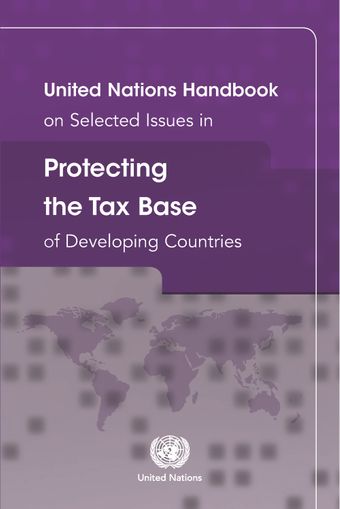- Home
- Books
- United Nations Handbook on Selected Issues in Protecting the Tax Base of Developing Countries
- Chapter
Neutralizing effects of hybrid mismatch arrangements

- Author: United Nations
- Main Title: United Nations Handbook on Selected Issues in Protecting the Tax Base of Developing Countries , pp 187-273
- Publication Date: December 2015
- DOI: https://doi.org/10.18356/3d383677-en
- Language: English
The use of hybrid mismatch arrangements is one of the ways in which large multinationals can end up effectively paying lower tax rates than the small domestically bound enterprises that multinationals often compete with. This is a major concern for most countries, including developing countries. Hybrid mismatch arrangements are not new in international tax. Conceptually, it has always been possible to engage in such arrangements for the purpose of minimizing tax. What has changed is the proliferation of hybrid mismatch arrangements, the ease with which they can be achieved and their comparative importance. This change is largely a function of the increase in electronic commerce and globalization. Such arrangements are not ?wrong? per se — they are simply a function of two countries having, typically unilaterally, decided not to tax a particular cross-border dealing or give some other favourable tax effect (such as a deduction). What might be considered ?wrong? is the manner in which tax advisers and multinationals have in recent years aggressively sought out and exploited such arrangements.
© United Nations
ISBN (PDF):
9789210572361
Book DOI:
https://doi.org/10.18356/c8c4a273-en
Related Subject(s):
Economic and Social Development
Sustainable Development Goals:
-
From This Site
/content/books/9789210572361c008dcterms_title,dcterms_subject,pub_keyword-contentType:Journal -contentType:Contributor -contentType:Concept -contentType:Institution105
/content/books/9789210572361c008
dcterms_title,dcterms_subject,pub_keyword
-contentType:Journal -contentType:Contributor -contentType:Concept -contentType:Institution
10
5

